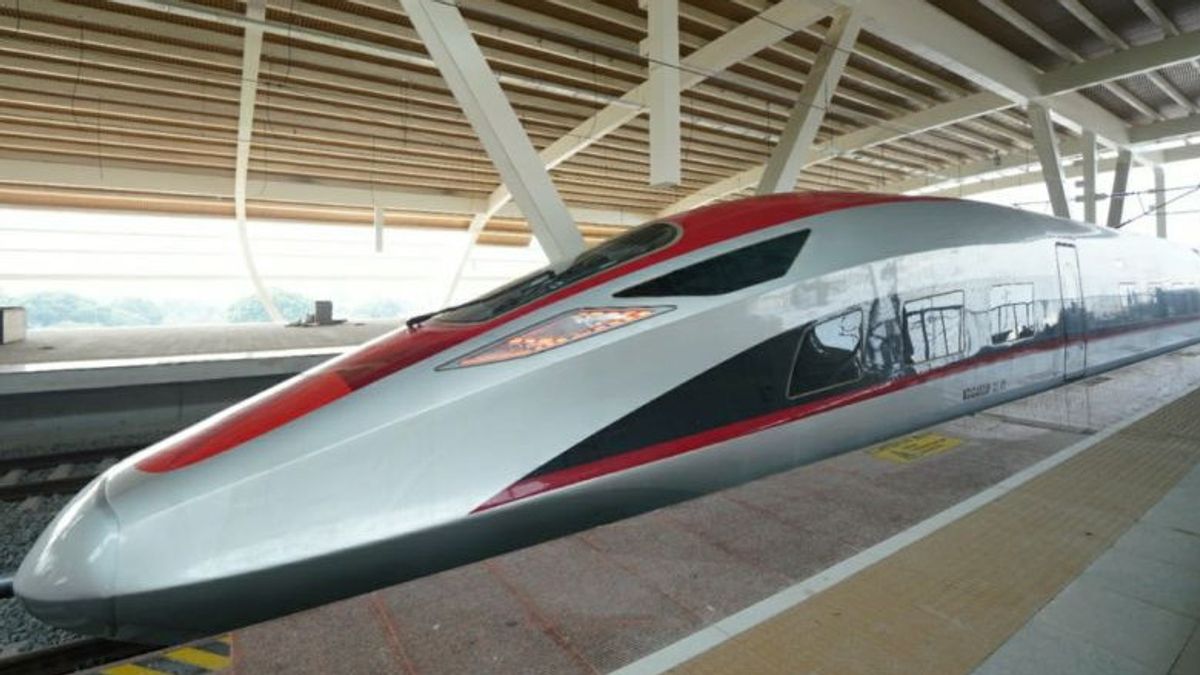
JAKARTA - PT Kereta Cepat Indonesia China (KCIC) said the rate in testing the Jakarta Bandung Fast Train (KCJB) was increased gradually.
Starting Monday 22 May, the implementation of KCJB testing & commissioning will increase its travel speed. By using a comprehensive inspection train (CIT) or inspection train, the speed is increased from the previous average of 60 km/hour to 180 km/hour.
KCIC President Director Dwiyana Slamet Riyadi said the increase in speed or speed in the trial could finally be carried out after all the initial preparations for the implementation of testing & commissioning were completed.
"Various tests of the readiness of the KCJB infrastructure carried out previously have been running smoothly. Based on the evaluation, starting Monday, May 22, the speed of fast train travel will be increased to 180 km/hour," said Dwiyana, as reported by Antara.
Based on the implementation of testing & commissioning on Monday, KCIC reported that the travel time between Halim Station, East Jakarta to Tegalluar Station, Bandung Regency was only about 50 minutes.
Later, the speed will continue to be increased until it reaches the peak of operational speed at 350 km/hour and even reaches the peak of its technical speed, which is up to 385 km/hour.
KCIC explained that to achieve this figure, the operation of CIT will continue to be improved every day. Travel with CIT is focused on testing the integration of the facilities and infrastructure system. All aspects will also be checked whether its function is normal and can be passed by KCJB at high speed.
There is a series of CITs or KCJB inspection trains consisting of eight trains. The functions of these various trains consist of train one for track testing needs, train two to check the signaling and communication system, train three for the electricity function of the upper flow or overhead catenary system (OCS).
Next, four and seven trains for the workspace, five trains serve as restoration, six trains are meeting rooms, and eight trains for signal functions and rail integration checks.
관련 항목:
"The implementation of KCJB testing & commissioning will continue to be carried out by KCIC together with independent contractors and consultants. Speed will continue to be increased gradually to ensure all facilities and infrastructure built are ready to operate," said Dwiyana.
Meanwhile, Deputy Minister of BUMN II Kartika Wirjoatmodjo said that the tests this time were all running smoothly. According to him, all systems function properly, such as trains, rails, signaling, electricity and others.
"Gradually, the speed of testing travel will be increased until it reaches the peak of its technical speed at 385 km/h. To achieve this, improvements in several aspects such as safety fences and sound barriers need to be improved so as not to disturb the comfort of the community when KCJB passes," said Kartika.
The Ministry of SOEs hopes that the presence of KCJB will present a new economic center that will support the corridor between Jakarta and Bandung. KCJB will also be supported by integration with the Jabodebek LRT so that it has good accessibility.
The English, Chinese, Japanese, Arabic, and French versions are automatically generated by the AI. So there may still be inaccuracies in translating, please always see Indonesian as our main language. (system supported by DigitalSiber.id)










